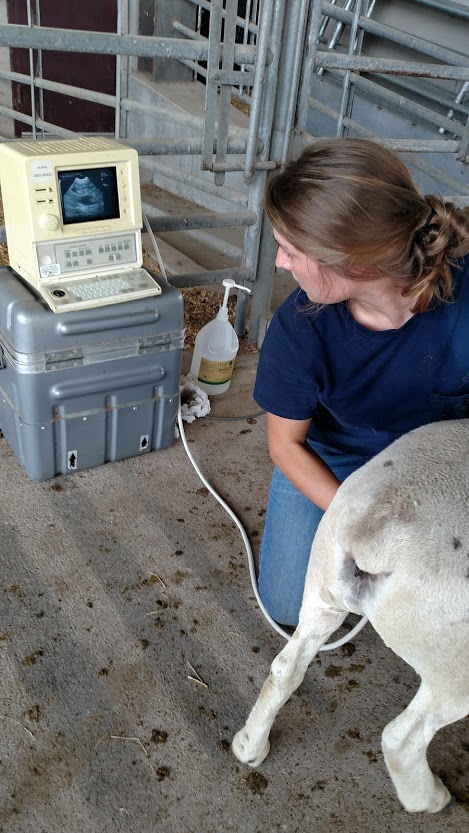Katherine Halloran, an assistant professor in the University of Kentucky Martin-Gatton College of Agriculture, Food and Environment's Department of Animal and Food Sciences, has received a $10,000 Emerging Investigator Grant from the Society for the Study of Reproduction (SSR). The competitive award, announced at SSR's July meeting, supports early-career scientists as they build their research programs.
Halloran will use the funds to study polycystic ovary syndrome (PCOS) with a focus on how postnatal obesity may change ovarian function. PCOS is among the most common hormone disorders in women, affecting an estimated 10-13% worldwide. Additionally, obesity worsens the symptoms and prevalence in those with PCOS.

"I had no idea this was coming," Halloran said when she learned she was one of four people to win the grant. "I'm grateful for the support, and I'm ready to put it to work."
Her project uses a well-established sheep model of PCOS to examine how excess weight after birth can worsen the condition. The team has already collected ovaries from research animals and will use laser capture microdissection to isolate specific cell types in the ovary that are critical for ovarian function. They will then sequence those cells to examine gene expression related to oxidative stress, inflammation, metabolic dysfunction and other pathways linked to PCOS and obesity.
"Sheep offer key advantages for this work," Halloran said. "They usually have one or two offspring, their organ development timelines mirror humans, and their offspring are born more fully developed compared to rodent laboratory animals. That helps us ask human-relevant questions at the right time points."
The work builds on samples Halloran collected during her postdoctoral training. She said the grant will generate data that can power larger proposals and next-step studies.
"These funds let us explore focused questions now, so we can pursue bigger questions next," Halloran said.
From here, Halloran's team plans to look at oocyte quality - how markers for epigenetic changes and oxidative stress might change in the face of PCOS and obesity, something that has direct implications for embryo development and future fertility.
"Our goal is clear," Halloran said. "We want to understand the origins of PCOS well enough to help point to prevention or early intervention strategies. Even a small step forward can make a difference for individuals with PCOS and their reproductive-metabolic health."
The Emerging Investigator Grant was created to provide new faculty members with targeted support for experiments that advance their research labs.
"It may be a small award, but it removes key hurdles," Halloran said. "It gets us the sequencing we need now, and it helps us make the case for the next round of funding opportunities."






